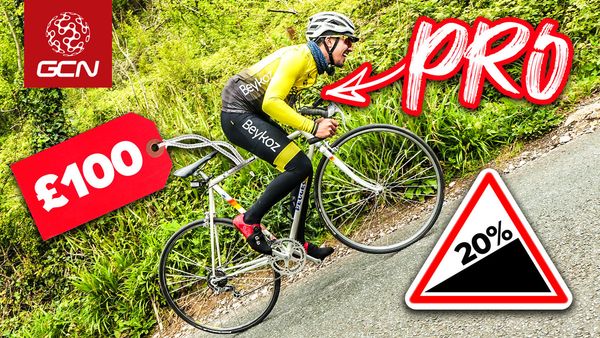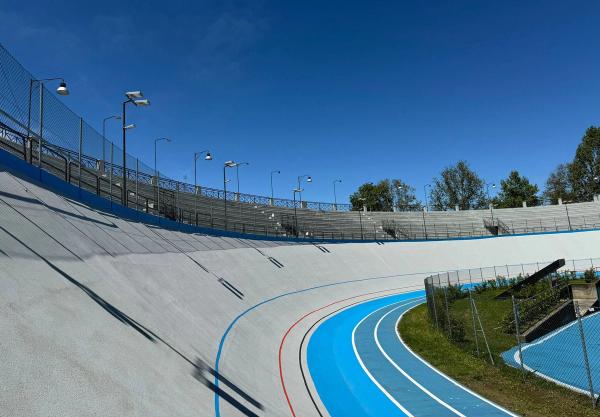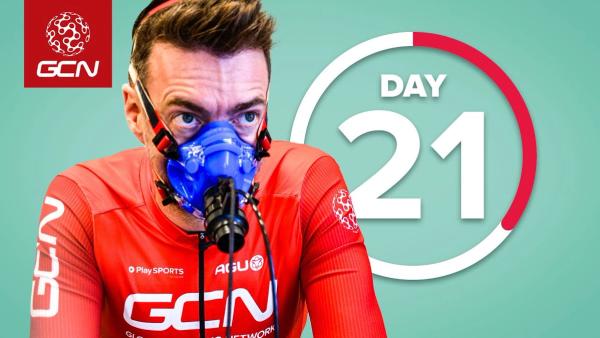Does cross-training work? Zwift 30 in 30 part 2
Gym training, running, walking and swimming are all great in their own right but can they benefit our cycling performance?
Alex Hunt
Junior Tech Writer
This January at GCN we set ourselves and you the task of being active for 30 minutes every day for 30 days. This involved two Zwift group rides each day, hosted by our presenters.
The 30 in 30 challenge wasn’t limited to just cycling, though; it included all forms of physical activity.
So how does supplementing riding with other forms of exercise boost your performance on the bike, if at all?
What is meant by the term cross-training?
Cross-training is when you add other sports or forms of exercise to your main activity. For example, if your main sporting activity is cycling (of course it is, that's why you're here), adding gym sessions or running would be a form of cross-training.
It can be used to improve your overall health and fitness and has been linked with injury prevention that can come with repetitive motions of some sports like cycling and running.
Cycling can also be time-consuming. After all, it is literally characterised as an endurance sport. For those of us who aren't pro riders, getting out for rides is not always the highest priority in our days. This sometimes leaves little to no time to fit a ride into a daily schedule. That is where cross-training can help. Instead of a two-hour ride you can complete a 30-minute HIIT workout or run to or from the office.
Cross-training can increase the amount of overall training you can manage simply by being more convenient. It can also have plenty of mental health benefits. Mixing up your regular training with fresh movements and new challenges is a great way to avoid stagnation and boredom around training.
With all of this being said, a number of the GCN presenters have been doing exactly that and adding some sort of cross-training into their weeks.
Simon Richardson: Running
Si did spend most of his time in January riding his bike, as that is what he loves to do. He did find time to fit five runs into his January schedule, taking a relaxed approach with no real aims beyond completing the runs without ruining himself for riding the next day.
With this approach, Si is reluctant to believe that running in this way or frequency will boost his cycling performance much. The benefit he did find was how easy runs can replace riding on the days when there's not enough time to get out on the bike.
Studies looking into cross-training between cycling and running have shown that an athlete's aerobic capacity can be maintained by doing one or both of the activities. This is great if you are going into a period where getting out on the bike regularly is going to be a struggle. Replacing some rides with runs instead will have you returning to the bike at similar level aerobically.
If you are looking to add running into your training, the biggest thing to consider is that it needs to be a very slow and gradual process. Although both cycling and running use the cardiovascular system in the same way, how our muscles and joints are recruited is very different. If you are not used to running it can take a while for your body to build up the strength for its specific motions. Injuries are incredibly common for new runners so taking it easy is essential.
Conor Dunne: Swimming
Instead of running, Conor opted to add swimming into his routine – yes, were getting dangerously close to triathlete territory here! This is something that he has done since he was a child and Conor felt like swimming offered a great change in environment and motion to the hunched and aero contortions of road cycling.
It might not come as a great surprise to find that few studies look into the benefits that swimming can have on cycling performance. There is some evidence that shows that swimming can boost cognitive function more so than cycling and running, so although there might not be any direct physical benefits for cycling, it can potentially increase brain health. Swimming has also been linked to reducing arterial stiffness which has the effect of reducing stress on the brain and kidneys, once again increasing general, all-around health.
Something that swimming does provide, that both cycling and running don't, is an all-body workout. If you spend a lot of time on the pedals or pounding the pavements your upper body can end up suffering as a result. It can be seen as a good thing to have low-muscle content on your upper body in an attempt to be as light as possible. This is true for the world's best but for us mortals that live regular lives having some upper body strength can really benefit our day-to-day lives.
Hank: Gym
With the 30 in 30 challenge taking place in January, Hank made the wise decision to make the gym part of his routine. Training in the gym can be great for motivation, especially in the winter months when the weather outside can make getting out on a ride a real battle.
Training in the gym allowed Hank to be particular about the areas he is looking to work on. This month, he specifically targeted core strength and some weight loss through running on the treadmills. The gym presented a fresh challenge with new movements and a fresh training environment.
Depending on what training you want to do at the gym it can be a great place to work on any asymmetries you may have developed over the years, as well as working on any weaknesses that could lead to injuries further down the road. For those more performance-orientated, gym work is also fundamental to developing sprint power using a combination of resistance and plyometric training.
Manon Lloyd: Walking
Not all physical activity has to push your limits and have you dripping with sweat by the end of it. Manon did plenty of walking, often with her dog, as a change to cycling and sometimes that's all we need – heading out for a stroll and taking in the world around us. In fact, studies have shown that people who get out for at least a 20-minute walk each day are 43% less likely to take a sick day than those who exercise just once per week.
A study of over 12,000 participants carried out by Harvard University found that the effects of 32 obesity-promoting genes were cut in half in people who went on a brisk walk each day. Walking does not just have physical benefits, it is also linked to improved mental health and clarity. Sometimes taking the time to slow things down a little and just enjoy a nice walk can be just what our heads need.
To find out what Dan Lloyd, Alex Paton and Ollie Bridgewood have been up to this month, make sure to watch the video linked at the top of this page.
Do you mix up your cycling with some cross-training or are you a die-hard cyclist who wouldn't be seen dead in a pair of running trainers? Let us know your thoughts in the comments.
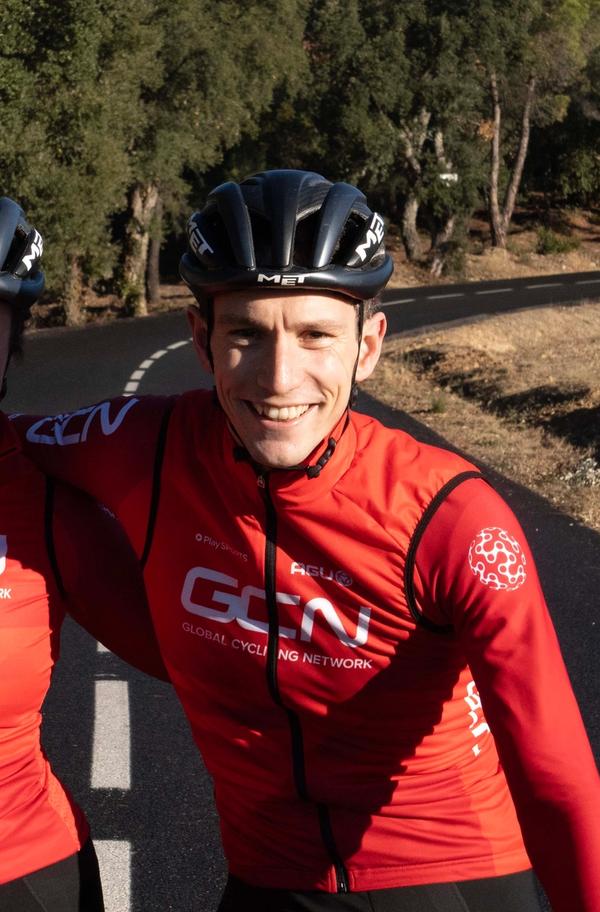



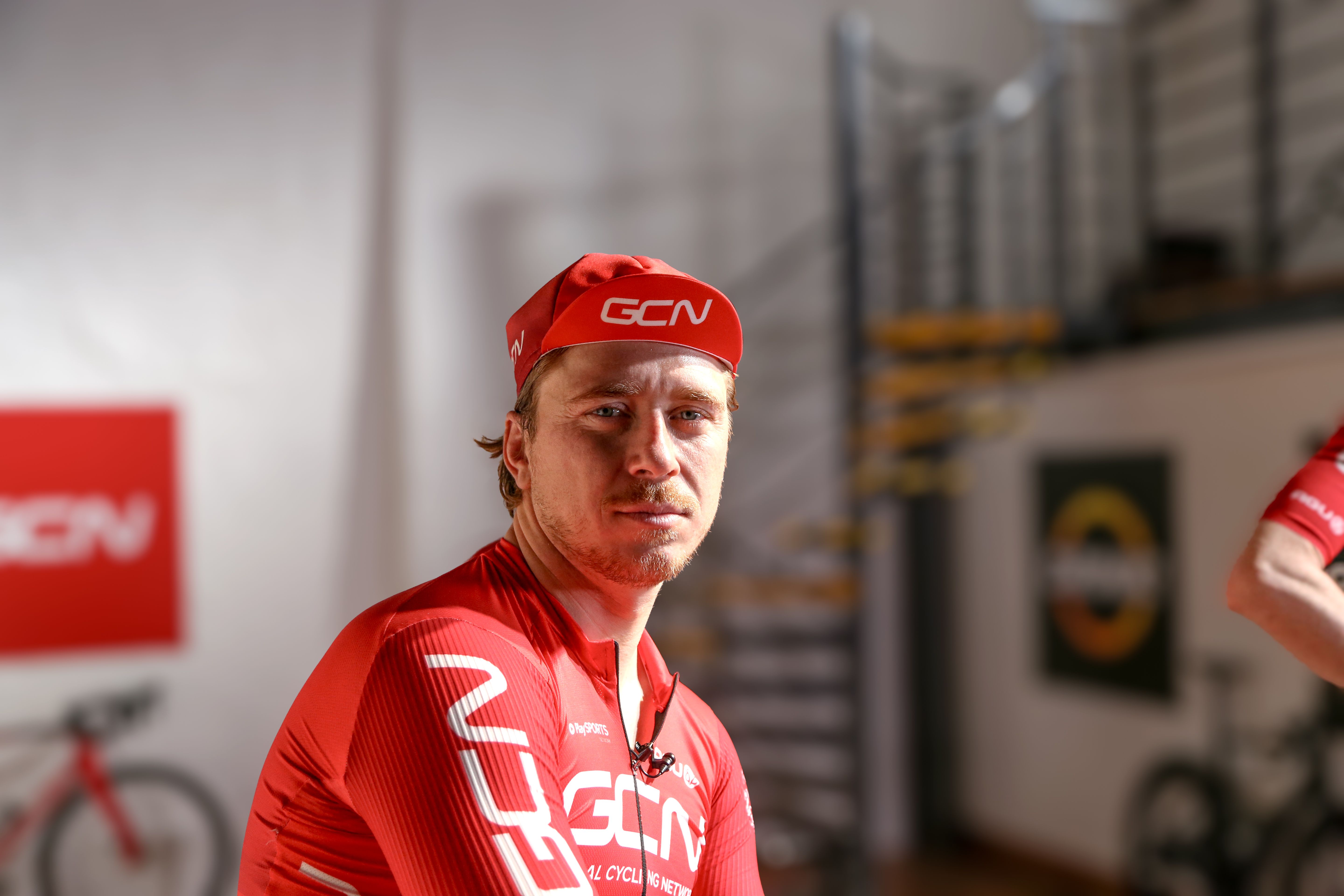.jpg?rect=957,780,3097,3060&w=600&auto=format)









